New Campus Policy based on New California State Law
Will the new non-discriminating California law affect Rocklin High?
On January 1, 2014, a new law went into effect in California. This law, AB 1266, is completely unprecedented at the state level, and has been met with a huge wave of controversy and protest. The new law mandates that all school districts allow transgender students to join the programs and use the facilities previously restricted to the gender they identify as. Students will now be recognized as the gender they identify as, regardless of the gender given on their records.
California has a nationwide reputation of being a strong and consistent home of liberalism, even despite the implementation of Proposition 8, the same-sex marriage ban that was nullified by the Supreme Court. Still, this new law provides a clear example of California’s place as a leader of liberalism.
While this type of law has never been passed on a state level, school districts all over California have had similar policies for years. Some of the biggest districts in the state, like San Francisco and Los Angeles, already these rules in place. In fact, one section of the law’s stipulations had already been brought up at the state level in a bill that allowed transgender students to participate on sports teams that were restricted to the gender they identified as.
As a high school student, this new law has the ability to affect my daily life. Let’s take a closer look, and focus on my area in Northern California: Placer County. It just so happens that Placer County is known as the most conservative county in the entire state. According to the California Secretary of State, in early 2013 47% of registered voters were Republicans while 28% were Democrats.
Let’s look a little closer and check out the city I live in: Rocklin. According to the 2010 census, Rocklin is the second largest city in the county, and the second fastest growing. Following its second place trend, Rocklin is the second most Republican city in the county(the first being Loomis, but Rocklin is almost ten times more populous than Loomis).
The Rocklin Unified School District recently came under the leadership of a new superintendent, Roger Stock. As a brand new superintendent, there is likely a good deal of stress that can come in dealing with such a law in one of the most conservative cities in the state, especially so soon after taking the position.
“The California Department of Education is not giving school districts any guidance on how to approach [the new law].” Superintendent Stock said. Which, judging by the lack of public presence by the Board, appears to be completely true. The bill itself is very short, and says nothing about how schools should implement the law, just that they now need to.
“Every community is different.” Stock explained, “We’ll take it on a case-by-case basis.”
Let’s zoom in one last time, this time to my school: Rocklin High School. This is precisely where the new law is likely to have the greatest effect.
Locker rooms and sports teams are two areas of the bill that are getting the most attention, but according to Rocklin High’s Athletic Director and Vice Principal Davis Stewart the law hasn’t been put to use yet.
While Vice Principal Stewart hasn’t yet had to address any of these issues, he has the same case-by-case strategy as Superintendent Stock, “I don’t have that plan until it comes into play,” Mr. Stewart told me.
However, Mr. Stewart thinks that issues are likely to arise at some point, “It will be interesting when these issues are challenged, because I think that the scenario [of a transgender student being unwelcome on a sports team] will happen somewhere.”
While the athletics department hasn’t yet had to help accommodate a transgender student, Principal David Bills told me about something that wasn’t exactly common knowledge, “We’ve had transgender students here before, and sat with them, made plans on how to help them feel comfortable as well as other students, and we’ve been successful in the past.”
Mr. Bills informed me that in the past, transgender students were allowed access to the gender-neutral restrooms usually reserved for the faculty. “I’m here for each student on our campus, and we want to care for and make each student comfortable so they can learn,” said Principal Bills.
From talking to each of these three administrators it’s clear that, even if it’s without coordination, everyone seems to be on the same page. The superintendent, principal, and vice principal will all treat each case differently according to the needs of those involved. Also, despite any personal beliefs they may have withheld, these administrators seem to be genuinely devoted to providing a safe and equal learning environment for each and every student.
With such committed faculty, transgender students should feel safe to come out as transgender and be the person they really are. However, neither I nor the administrators I talked to are aware of any openly transgender students currently attending the school. In a school of over 1,800 students, there is bound to be at least one transgender student.
This leads to the question of what is keeping those students from coming out? Could it be that our school simply doesn’t have a single transgender student? Possibly, but I think the most likely answer is not the staff, not the rules and laws, but the other students.
“I don’t think transgender students would use this law to switch locker rooms because of the chances of them being bullied and isolated.” said Megan Sunde, a senior. “ Rocklin is very conservative, the transition would be difficult.”
I’d like to believe that my peers and I are kind enough to accept these students, but some of my experiences suggest that the response would not be so encouraging for the openly transgender.
While the faculty will continue to do what they can, they can’t teach new social standards. Unfortunately, I don’t think a transgender student’s use of their preferred facilities and programs will be a seamless transition. Fear of being rejected is a problem that all people, especially transgender students, must deal with.
Rocklin’s conservative culture might be so intimidating as to keep transgender students from coming out and be the person they really are inside. It might be a large and organized protest, the end of friendships, or even just a dirty look, but opposition is more likely here than any other place in the state. It is very possible that there are transgender students here at RHS, but they are too afraid to come out.
This law is supposed to be a radical, revolutionary new concept to set example for the other states of our union, but looking past the petitions and the headlines, it doesn’t seem to be changing anything. Areas where this issue is prevalent have already adopted similar policies, and areas like Rocklin probably won’t need to use such a policy very much if at all. Only in Rocklin could such a controversial issue become so boring.
Life will move on for all of us here in our little red bubble, increasingly defiant of the blue ocean around us. The state can continue to pass laws and set precedents for whatever issue they deem necessary, and Rocklin will probably continue to be a base of operations for the opposition of those laws.
The story of this law is just getting started, its future has yet to be determined. There are two sides to every issue. Rocklin just happens to be quite far to one side, opposite the rest of the state.



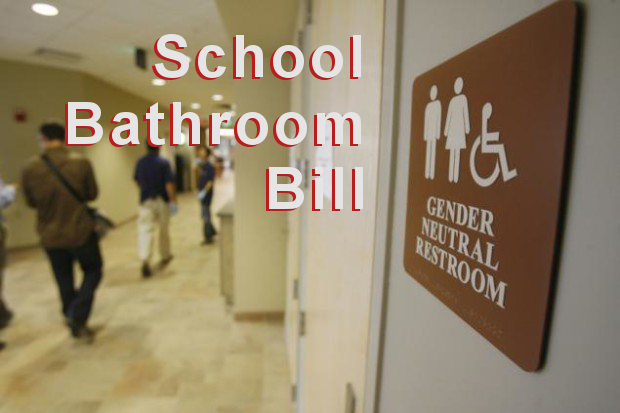







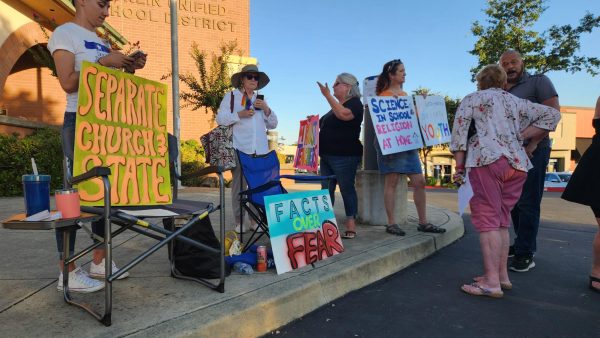
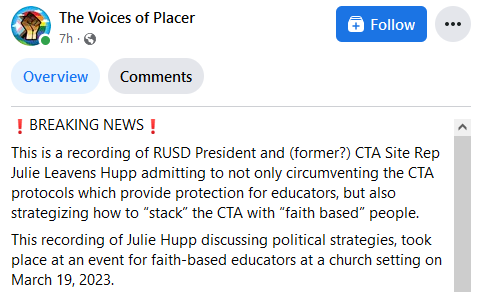
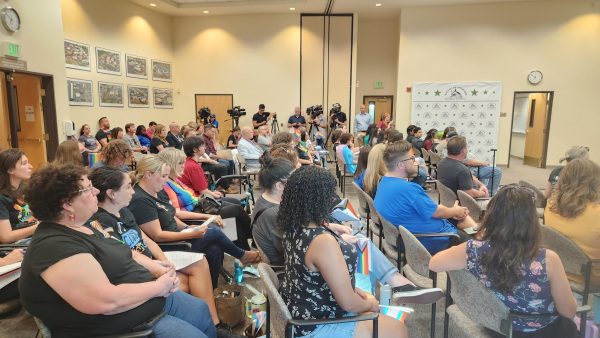


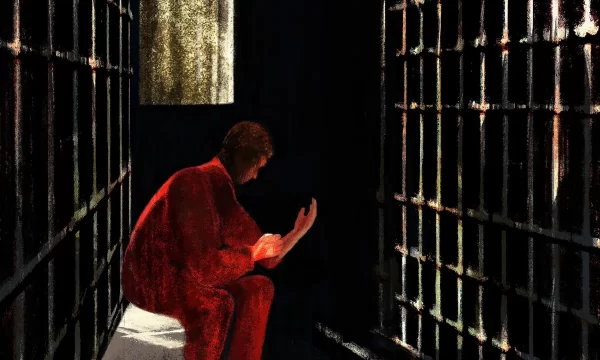

Elias Alba • Feb 6, 2014 at 11:58 am
The SOS of California’s website was vague on the subject, and the California Constitution Article 2 Sections 9-11 are also not clear as to whether or not the bill is on hold during the counting process. From what I gather from other websites regarding California law, this is actually a very confusing and unclear topic, and there is no legal consensus as to the answer. There will be a clear answer on February 24. The Secretary of State’s representatives have declared that the law is in effect, and popular consensus is that it is. As to legally implementing the law, each school district can independently pass such a law whenever they want, regardless of the outcome of the state law. Thanks for bringing this up, it was very interesting topic to research!
Karen Grube • Feb 5, 2014 at 8:36 pm
The article is certainly well written. However there’s more to the story. AB1266 is suspended until the full count of the repeal referendum signatures is complete around Feb, 24. No school has the right to implement this law until at least then, or until November if the number of signatures is enough to put it on the November ballot, and maybe NEVER if it is repealed by the voters. In fact, implementing it now is a violation of the law. Please check with the Secretary of State on the law regarding implementing any new law while it is in the process of being repealed.
Liam • Feb 5, 2014 at 2:40 am
I feel the need to say this is honestly one of the best Flash online articles I have read in the last 4 and a half years. It’s eloquent, informative, and has the perfect touch of humor. A real pleasure to read. It feels professional.